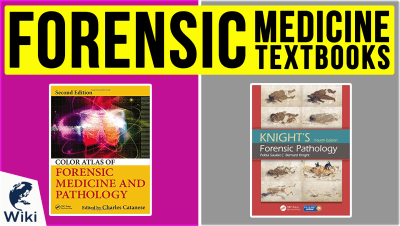13 Inspirational Memoirs About Strong Women
Whether you're a woman in need of inspiration or just a reader looking for an interesting and well-written book, you've come to the right place. The thirteen memoirs listed here all recount the lives of strong women who have had to deal with everything from poverty to heart disease. This video was made with Ezvid Wikimaker.
13 Inspirational Memoirs About Strong Women
Inspiring Quotes From Successful Women
| Quote | Source |
|---|---|
| "A woman with a voice is by definition a strong woman." | Melinda Gates |
| "I believe that it is as much a right and duty for women to do something with their lives as for men and we are not going to be satisfied with such frivolous parts as you give us." | Louisa May Alcott |
| "One's feelings waste themselves in words; they ought all to be distilled into actions which bring results." | Florence Nightingale |
| "If the first woman God ever made was strong enough to turn the world upside down all alone, these women together ought to be able to turn it back, and get it right side up again!" | Sojourner Truth |
| "It doesn't matter who you are, where you come from. The ability to triumph begins with you. Always." | Oprah Winfrey |
8 Great Movies Based on Memoirs
- Girl, Interrupted (1999)
- Confessions of a Dangerous Mind (2002)
- A Mighty Heart (2007)
- Eat Pray Love (2010)
- Catch Me If You Can (2002)
- A Beautiful Mind (2001)
- October Sky (1999)
- Persepolis (2007)
How to Write a Memoir
In Depth
It takes a very strong person to not only overcome heartbreak and adversity, but to put those struggles on display. That's exactly what the women on this list have done, by sharing the lessons they've learned from dealing with hardships in order to help others in similar positions. Presented in no particular order, here are thirteen memoirs by women who epitomize resilience and courage.
Starting off the list at #1 is "Hippie Boy: A Girl's Story" by Ingrid Ricks. The author was only thirteen years old when her Mormon stepfather held her to the ground and tried to expel Satan from her body. Hurt by the dysfunction of her mother's religious household, she opted to spend summers on the road with her father, a traveling tool salesman. Her dad was a saving grace until he was arrested, at which point she learned the importance of caring for herself.
At #2 is "My Journey Through War and Peace" by Melissa Burch. After having spent more than a decade as a war journalist for major television networks, Burch gained a unique perspective on the power of culture and humanity. She was in the Soviet Union during the Cold War, and later traveled to Afghanistan. Along the way, she witnessed death, danger, and heartbreak. She describes her adventurous life in detail, and shares how she was able to find inner peace despite the conflict that surrounded her.
Along the way, she witnessed death, danger, and heartbreak.
Coming in at #3 is "Pigs Can't Swim" by Helen Peppe. The youngest of nine children, the author had quite an upbringing on her family's farm in the backwoods of Maine. She describes growing up in poverty, the numerous fights she had with her siblings, and the chaos of a home with 12 people and only one house key. While blending humor with grace, she recounts a childhood full of animals and wild humans, and empathizes with the task her parents had in caring for them all.
At #4 is "Feast" by Hannah Howard. When she was a freshman in college, Howard got a job waiting tables at a high-end Manhattan restaurant. She quickly became enamored with the quick pace and vibrant energy of the service industry. As much as she loved working around kitchens, she had an eating disorder that she kept private. Finding happiness required repairing the connection between her body and her food.
#5 on the list is "Beautiful Affliction" by Lene Fogelberg. In her home country of Sweden, no doctor believed Fogelberg when she said that she was dying. A lifelong phobia of an early death was crippling her, even with her husband and two children nearby. After making the move to America, she found out that her worst fears were true. She had a fatal heart disease. But she'd been preparing for bad news, and wasn't willing to give up.
She had a fatal heart disease.
At #6 is "Classified Woman" by Sibel Edmonds. A former translator for the FBI, Edmonds has some strong intel on the secrecy of the U.S. government. With stories about Congress, Middle Eastern dictatorships, and life at the FBI after September 11th, she describes how citizens are losing their rights and their privacy. In the process, she shares the dangers of a political system that operates in the shadows.
Coming in at #7 is "Sick" by Porochista Khakpour. Sickness was all that the author ever knew. Mysterious illnesses had followed her from childhood to adulthood. After spending six figures on failed treatments, and growing addicted to numerous drugs, Khakpour was finally given a diagnosis: she had late-stage Lyme disease. Through stories from various stages of her life, she describes the mental and physical toll of endless discomfort, and what it was like finally getting an answer.
#8 on the list is "The Boy Who Loved Tornadoes" by Randi Davenport. Having a kid with autism and a husband who exhibited bizarre emotional behavior never stopped Davenport from creating a household full of strength and love. But her spouse left, and her son suffered psychosis when he was fifteen. Suddenly she had even more challenges to overcome. She worked around a broken heart, and a difficult health care system, to save the life of her child and bring comfort and unity back to her home.
But her spouse left, and her son suffered psychosis when he was fifteen.
At #9 is "Teaching the Cat to Sit" by Michelle Theall. The Texas Bible Belt wasn't the best place for a young gay woman to grow up. Yet one by one, most of the important people in Theall's life came to accept her, including her church. But her mother didn't. She eventually learned to move on, and focus on her partner and child, and her new home in Colorado. But when her sexuality caused a school to try and expel her son, she was forced to become more vocal, and to finally confront the ways in which her mother and her religion had kept her from being proud of who she was.
#10 on the list is "Leaving the Hall Light On" by Madeline Sharples. After a seven-year battle with bipolar disorder, Sharples' son decided to take his own life. What followed for her was guilt, heartbreak, anger, and deep depression. Despite her own suicidal thoughts, she learned how to move forward with life, care for herself, and focus on her family.
Coming in at #11 is "Lost in the Reflecting Pool" by Diane Pomerantz. It wasn't until she had adopted a child, and was diagnosed with breast cancer, that Pomerantz realized her husband was a pathological narcissist. When she needed him most, he proved to be only invested in himself. It was a cruel twist of fate given her career as a psychologist. With courageous descriptions, she reveals terrifying truths about emotional abuse.
When she needed him most, he proved to be only invested in himself.
At #12 is "The Alchemy of Loss" by Abigail Carter. Heartbreak hit Carter hard when her husband was killed in the September 11, 2001 terrorist attacks. Her perfect family life was no more, but she still had two kids and herself to live for. With great wit and perspective, she describes how she picked up the pieces of her life, and slowly moved on from tragedy.
Concluding the list at #13 is "Ask Me About My Uterus" by Abby Norman. Despite hospitalizations, severe pain, and weight loss, Norman was never taken seriously by doctors. They merely told her she had a urinary tract infection. So she began to research her body on her own time, and eventually realized that medical professionals would listen to her if her boyfriend mentioned her compromised sexual performance. The author uses her experiences to make cultural and political points about how women's bodies are viewed.






















